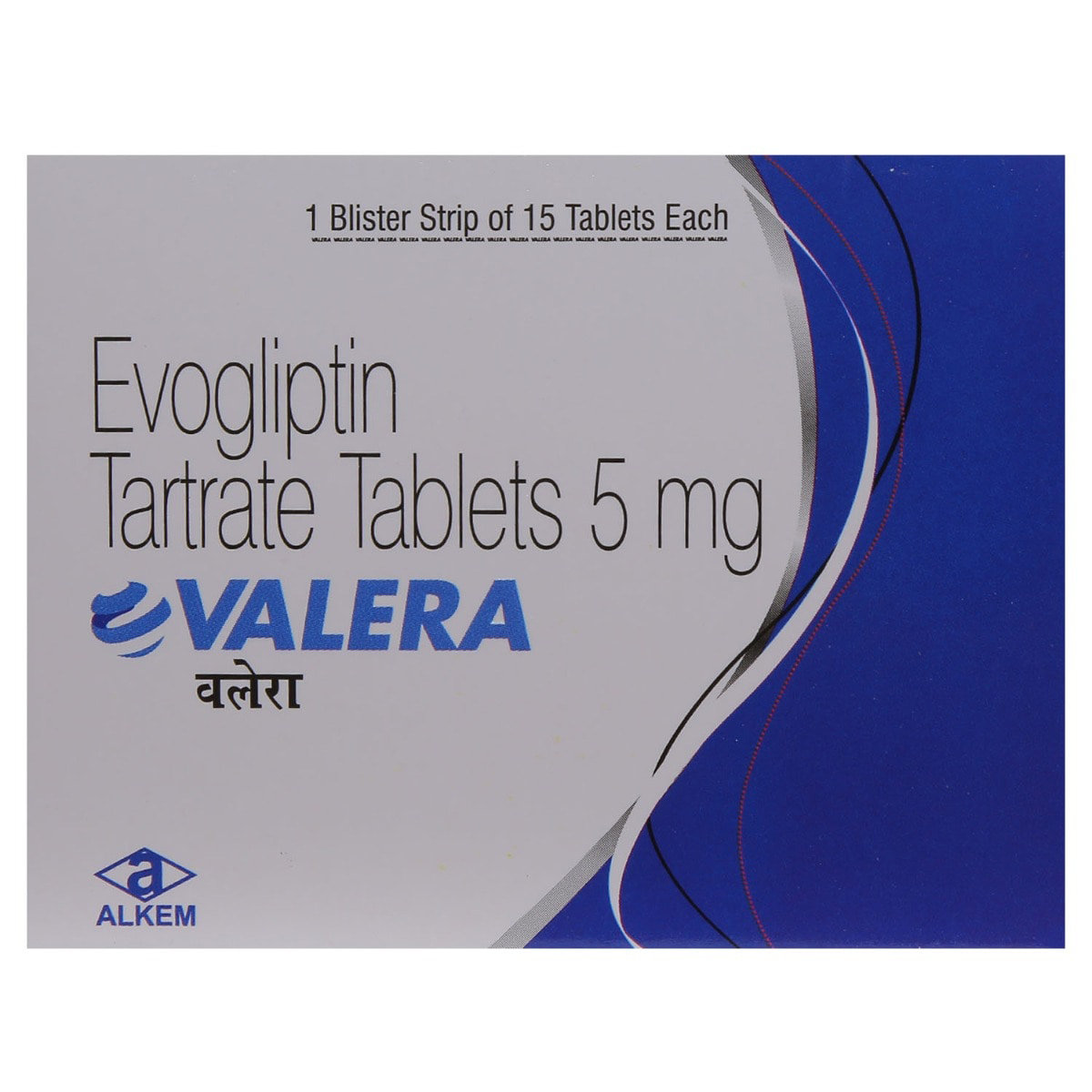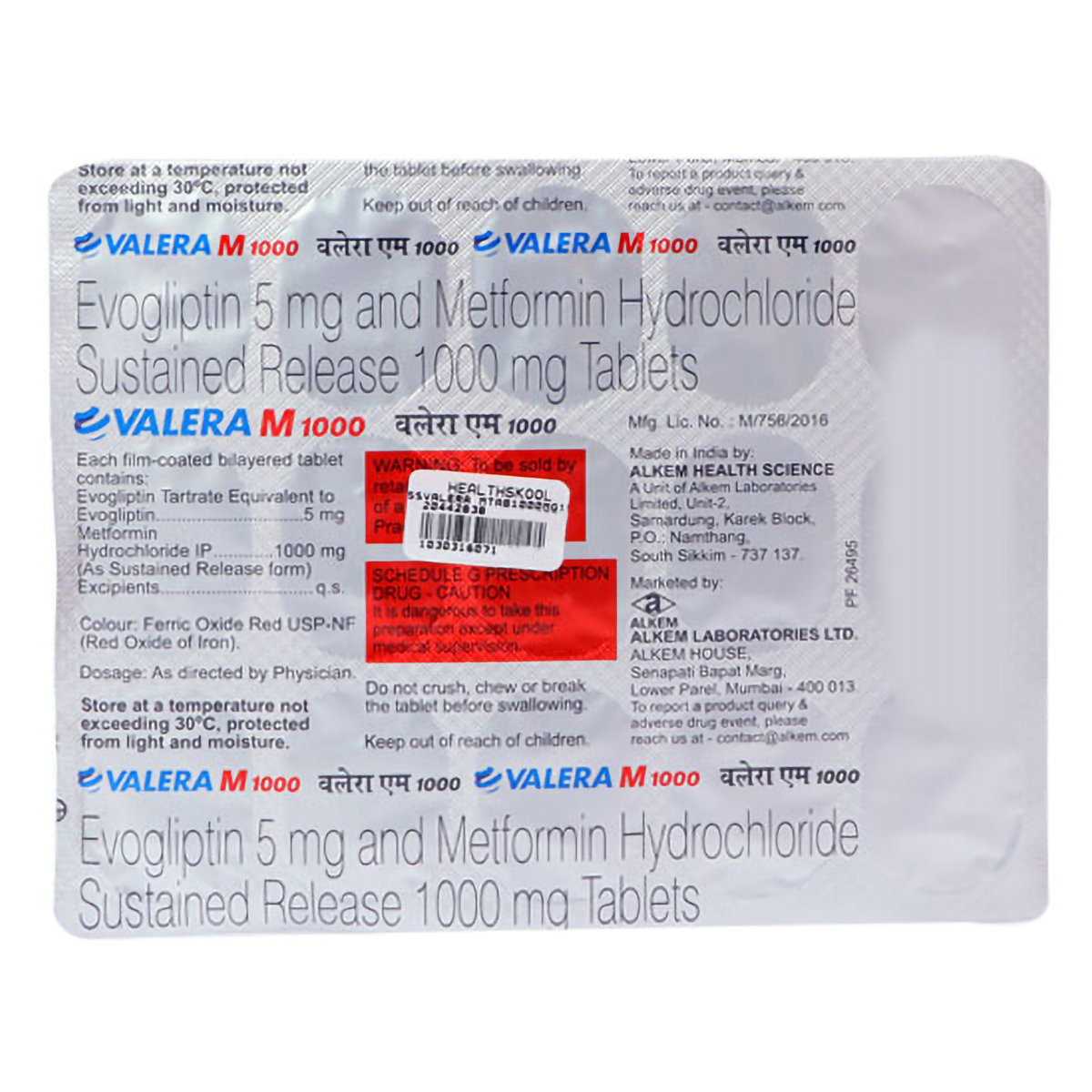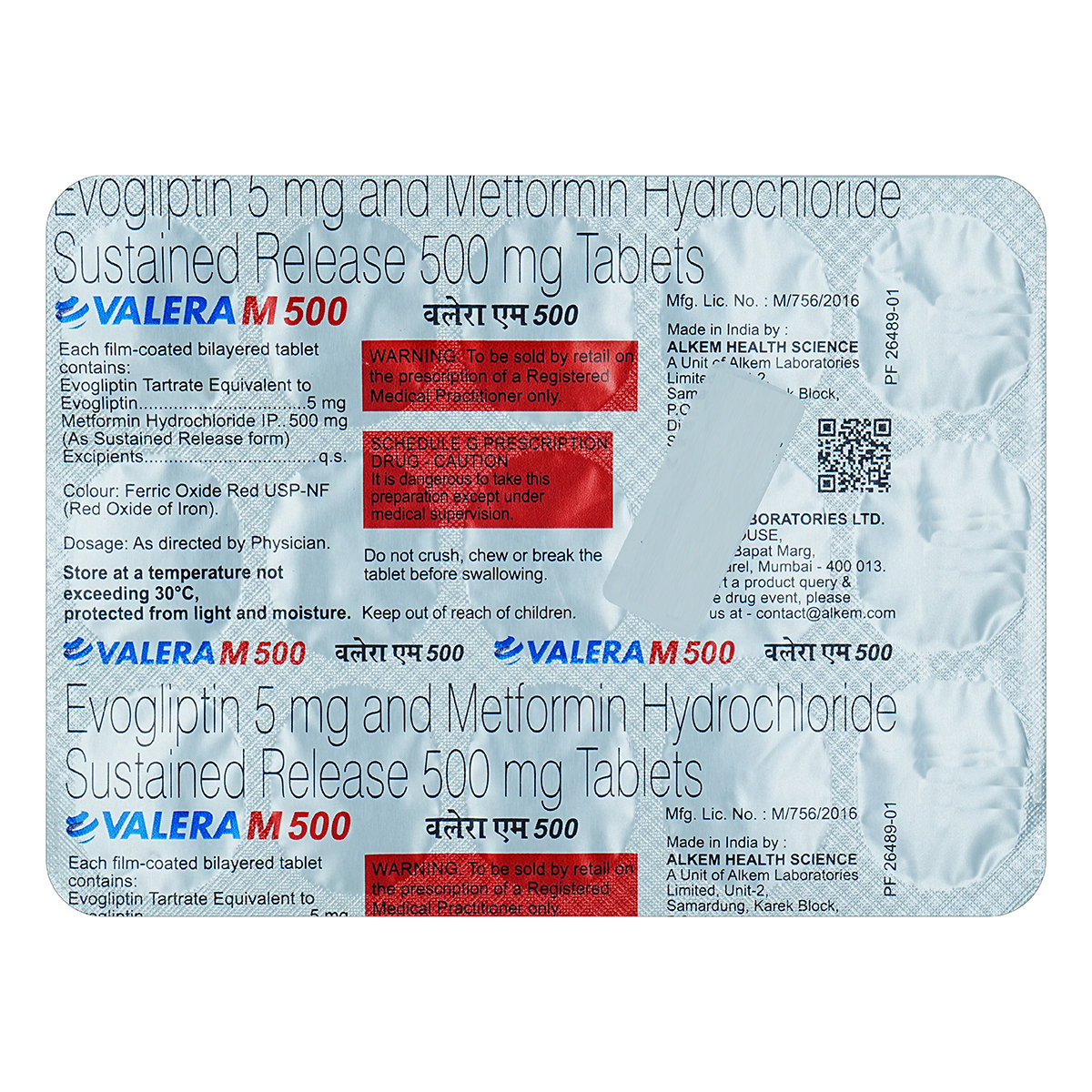Evogliptin
About Evogliptin
Evogliptin belongs to the group of anti-diabetic medicines called dipeptidyl peptidase-4 inhibitors used to treat type-2 diabetes mellitus adjunct to diet and exercise. Type-2 diabetes mellitus is also known as non-insulin-dependent diabetes or adult-onset diabetes. It is a medical condition in which blood glucose levels are above normal due to insulin deficiency, insulin resistance, or both.
Evogliptin contains ‘Evogliptin’, it promotes insulin secretion from the pancreas and regulates blood glucose levels post-meal by controlling glucagon secretion. Evogliptin exhibits hypoglycaemic effect by inhibiting dipeptidyl peptidase-4 activity. Thereby, Evogliptin helps treat diabetes.
In some cases, Evogliptin may cause common side effects such as indigestion, diarrhoea, nasopharyngitis (cold), gastritis, and joint pain. Most of these side effects do not require medical attention and will resolve gradually over time. However, you are advised to consult your doctor if the side effects persist or worsen.
Consult your doctor if you are pregnant or breastfeeding. Evogliptin is not recommended for children as safety and efficacy have not been established. It is unknown if alcohol interacts with Evogliptin, so please consult a doctor if you have any concerns. Inform your doctor about all the medicines you are taking and your health condition to rule out any unpleasant side effects/interactions.
Uses of Evogliptin
Medicinal Benefits
Evogliptin belongs to the group of anti-diabetic medicines called dipeptidyl peptidase-4 inhibitors used to treat type-2 diabetes mellitus adjunct to diet and exercise. Evogliptin promotes insulin secretion from the pancreas and regulates blood glucose levels post-meal by controlling glucagon secretion. Evogliptin exhibits a hypoglycaemic effect by inhibiting dipeptidyl peptidase-4 activity. Thereby, Evogliptin helps treat diabetes.
Directions for Use
Storage
Side Effects of Evogliptin
- Indigestion
- Diarrhoea
- Nasopharyngitis (cold)
- Gastritis
- Joint pain
Drug Warnings
Do not take Evogliptin if you are allergic to any of its contents; if you have severe ketosis, type-1 diabetes, diabetic pre-coma or coma. Inform your doctor if you have heart problems, diabetic ketoacidosis, acute pancreatitis, low blood sugar levels, kidney or liver problems. Consult your doctor if you are pregnant or breastfeeding. It is unknown if alcohol interacts with Evogliptin, so please consult a doctor if you have any concerns. Inform your doctor about all the medicines you are taking and your health condition to rule out any unpleasant side effects.
Drug Interactions
Drug-Drug Interactions: Evogliptin may interact with antibiotics (clarithromycin).
Drug-Food Interactions: No interactions found/established.
Drug-Disease Interactions: Inform your doctor if you have diabetic ketoacidosis, acute pancreatitis, or hypoglycaemia (low blood sugar levels).
Drug-Drug Interactions Checker List:
Safety Advice

Alcohol
cautionIt is unknown if alcohol interacts with Evogliptin, so please consult a doctor if you have any concerns.

Pregnancy
unsafeEvogliptin is not recommended for pregnant women. Please consult your doctor if you have any concerns regarding this.

Breast Feeding
unsafeEvogliptin is not recommended for breastfeeding mothers. Please consult your doctor if you have any concerns regarding this.

Driving
cautionIt is not known if Evogliptin affects your ability to drive. Drive or operate machinery only if you are alert.

Liver
cautionPlease consult your doctor if you have a liver impairment or any concerns regarding this.

Kidney
cautionEvogliptin should be used with caution in patients with renal impairment. Please consult your doctor if you have kidney impairment or any concerns regarding this.

Children
cautionEvogliptin is not recommended for children as safety and efficacy has not been established.
Habit Forming
Diet & Lifestyle Advise
- Include foods rich in healthy carbohydrates and fibre, fruits, whole grains, and vegetables.
- Try eating food at regular intervals. Do not skip meals. Also, try not to overeat.
- Follow a healthy diet and walk for at least 45 minutes to complement treatment with Evogliptin.
- Maintain a healthy weight by exercising regularly.
- Rest properly, avoid stress by doing meditation or yoga.
Special Advise
- Regularly monitor blood glucose levels while taking Evogliptin.
- Try not to skip any doses and take Evogliptin for as long as your doctor has prescribed it for you.
- Always carry a sugary food such as candy or fruit juice and consume them if you experience hypoglycaemia.
Patients Concern
Disease/Condition Glossary
Type-2 diabetes mellitus: It is also known as non-insulin-dependent diabetes. It is a chronic or lifelong disease that keeps the body from utilizing insulin properly. Diabetes is a medical condition in which blood glucose levels are above normal. People with type 2 diabetes either do not produce enough insulin, or the insulin produced cannot perform its function in the body (insulin resistance). Middle-aged or older individuals are most likely to suffer from type 2 diabetes; hence, it is also known as adult-onset diabetes. Type 2 diabetes symptoms include lack of energy, tiredness, frequent urination, excess thirst, dry mouth, blurry vision, constant hunger, weight loss, and itchy skin.
FAQs
Evogliptin promotes insulin secretion from the pancreas and regulates blood glucose levels post-meal by controlling glucagon secretion. Thereby, Evogliptin helps treat diabates.
Do not stop taking Evogliptin without consulting your doctor, as it may cause an increase in blood glucose levels. Continue taking Evogliptin for as long as your doctor has prescribed it to you. Do not be reluctant to speak with your doctor if you experience any difficulty while taking Evogliptin.
Hypoglycaemia/low blood sugar levels could be the side effect of Evogliptin. Hypoglycaemia generally occurs when Evogliptin is taken along with other antidiabetic medicines, without food or with alcohol. Consume sugary food such as candy or fruit juice if you experience hypoglycaemic symptoms such as dizziness, cold sweats, anxiety, or tremor. Regularly monitor blood glucose levels while taking Evogliptin.
If you miss a dose, try to take it as soon as you remember. However, if it is almost time for the scheduled dose, skip the missed dose and take the scheduled dose instead. Avoid taking the double dose as it might cause unpleasant side effects or overdose.
Low fibre, high fat diet, sugary diet, obesity, smoking, stress, lack of exercise, age, genetic factors, and certain medical conditions are the common causes of diabetes.




